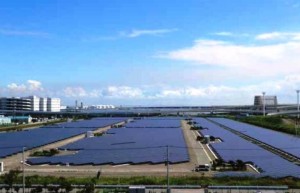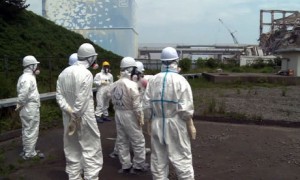Japanese trading house Mitsui plans to build large-scale solar power plants with the capacity to supply 30,000 households in the tsunami-hit northeast, a newspaper reported Wednesday.
The investment would reach at least tens of billions of yen (hundreds of millions of dollars), and construction may kick off before next March, the mass-circulation Yomiuri Shimbun said in its evening edition.
Mitsui and Co. hopes to create jobs and boost the power supply in the region, which is still struggling to recover from Japan’s worst post-war disaster that sparked the ongoing Fukushima nuclear crisis, the daily said.

The power plants would have total generation capacity of 100,000 kilowatts. Mitsui has already held talks with local authorities and the Tohoku Electric Power Company over the possible location of the plants, the report said.
A Mitsui spokesman said: “We are considering construction of mega solar power plants in Japan, but nothing concrete has been decided.”
Debate has picked up in Japan on a shift toward clean and renewable energy since the Fukushima nuclear plant was hit by the powerful March 11 quake and tsunami, causing radiation to leak into the air, soil and sea.
Prime Minister Naoto Kan has scrapped a national energy plan under which nuclear reactors would meet half of Japan’s energy needs by 2030 and has advocated making renewables “key pillars” of the energy mix.
Japanese telecom company Softbank is separately planning to build large solar power plants in a drive toward more renewable energies.

 Follow
Follow
